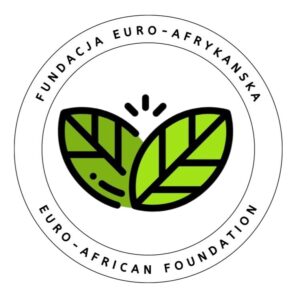About Us
The Euro-African Foundation, previously known as the Harambi Foundation, was established in 2005 through the joint efforts of Sudanese citizens residing in Poland and Polish individuals interested in development cooperation. The Foundation has a vision of fostering robust Euro-African relations through development cooperation and integration that promote education, entrepreneurship, and human rights.
Our mission is to create and execute projects that bring communities together and enhance the wellbeing of individuals and groups.
The Euro-African Foundation has a set of objectives that include working towards development and development cooperation in Africa, promoting and safeguarding freedom, human rights, civic liberties, democracy, and civil society in Africa, promoting economic development, including entrepreneurship and market economy, supporting social integration and cooperation among different communities and social groups, offering education on topics related to human rights, democracy, social issues, and economic problems, and advocating for women’s rights and gender equality.
Our values are rooted in the belief that local communities are fertile grounds for development, development is achievable through free and fair trade and community participation, Euro-African cooperation and integration can significantly impact development in both continents, and that education and new technologies are critical components for development in the twenty-first century.
Our Foundation is guided by the principle of Communal Work, which involves a gathering of individuals to jointly accomplish a task. This practice is found in many cultures, often serving the purpose of providing manual labor. In African communities, such gatherings were typically organized for major jobs, such as clearing fields or constructing buildings that would be difficult to complete alone. However, Communal Work was not just a utilitarian exercise but also a social event. For instance, tasks like corn husking or sewing could be done as a group, providing an opportunity for people to socialize while carrying out an otherwise tedious chore. Refreshments and entertainment were often provided by the group.
Various terms have been used to describe Communal Work in different regions across the globe. In Africa, it is referred to as Harambi (Harambee) in Kiswahili, Naffir in Sudanese Arabic, and Umuganda in Rwanda. Similar concepts exist in the Mink’awork of the Andes in South America and the Gadugiwork in Cherokee-speaking communities in North America. In Europe, Communal Work takes the form of Imece in Turkey, Moba in Serbia, Dugnad in Norway, Talkoot in Finland, and Meitheal in Ireland. In Asia, it is known as Bayanihan in the Philippines and Gotong-royong in Indonesia, Singapore, and Malaysia. In Australia, it is commonly referred to as a “working bee”.
